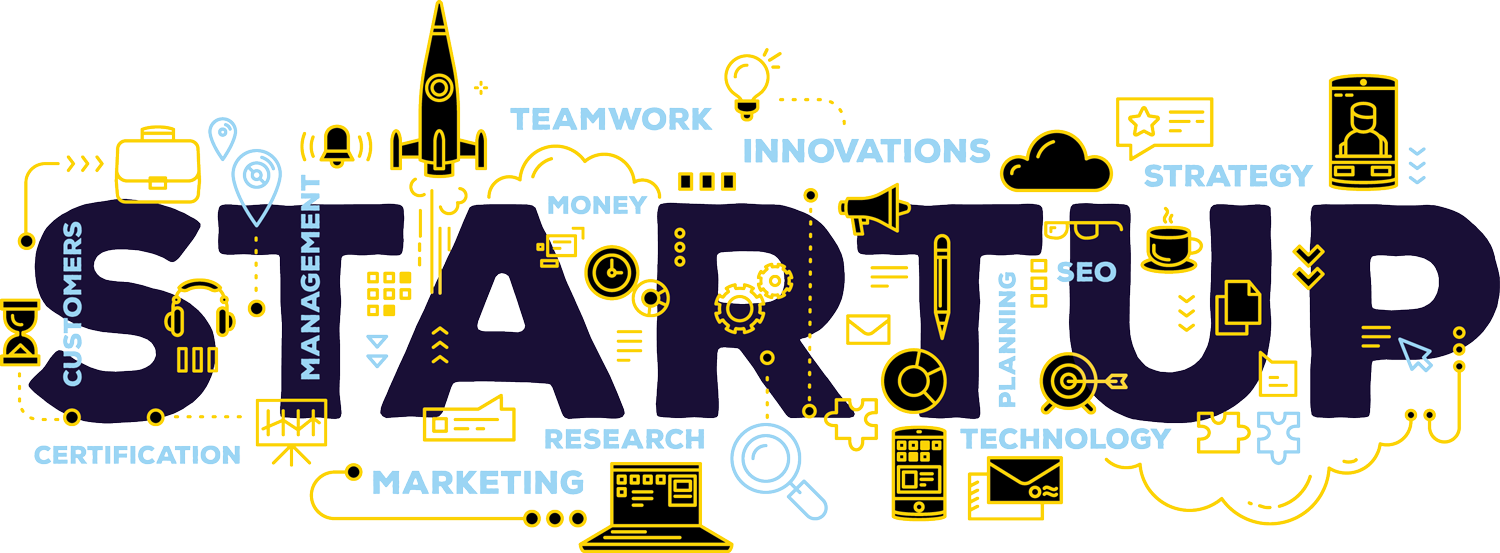
t all started with £20,000 for a coffee-machine at the new Kipferl Café and Kitchen restaurant in Corums Field, London.
I’ve spent the majority of my career in large, global companies, but roughly 15 years ago a friend gave me my first opportunity to invest in a start-up: his hospitality business.
It was then that I caught the start-up bug. My corporate world experience could not have been more different from what I have since enjoyed with start-ups. While the success of my financial return on those investments remains to be seen, the learnings from them are certainly a dividend that continues to pay forward.
But the least inspiring thing about big business is the “corporate bubble”: you have to deal with too many people who stay comfortably in their safe corner, with little or no entrepreneurial spirit.
But do I miss it? No, I don’t. Being in control of my time and spending that most precious commodity in a focused way is the biggest benefit.
I am currently invested in seven start-ups and have developed some very good relationships with the founders and their way of operating and leading. The wealth of things I have experienced in start-ups can be applied at scale in large corporations, increasing creativity and productivity immensely.
If you’re a leader who has never engaged with a start-up, now is the time to do so! You will be amazed at how much you can learn from a fresh perspective if you are prepared to listen.
Here are my four biggest learnings from start-ups:
1. Think quickly. Do quickly.
I have long believed that corporations must free up more time to think systemically. Too often I have seen an unwise judgment made by those who haven’t adequately considered the consequences of their decisions. To mitigate this, I always invite those I work with to follow a simple pattern: think, think, think, do, do, do—in precisely that order.
However, in a rapidly changing world, my perspective is starting to shift. Big corporates are losing the luxury of spending extended periods of time thinking. Pace, agility, and adaptability are giving start-ups an edge in innovation —this is one of their unique selling points as industry disruptors. This fast-paced environment is also why start-ups attract such great talent.
Deep thinking will always be important in big corporations, but the shift to testing ideas in real time is becoming ever more important. It is rewarding for employees to see their input come to life. When done at a higher clock speed, the probability of “striking gold” increases. We made many mistakes following that initial investment in the coffee machine, but there wouldn’t be a thriving cake delivery business in the UK without the do-learn-do mentality.
This mindset of thinking quickly and doing quickly is certainly something large companies can adapt and learn.
2. Purpose. Drive. Dedication.
All start-ups, no matter where they are in the world, share a similar feeling: unlimited possibility.
Start-ups are full of people with big dreams and enormous drive—the excitement in the air is tangible. Employees I have worked with in start-ups always have a strong emotional and personal connection to the success of their company. They know their start-up has only two possible outcomes: success or failure. There’s no safety net. And they know their personal contribution can play a big part in the outcome. These factors give these employees a deeper sense of purpose, more drive for success, and more dedication to go the extra mile.
By contrast, in large corporations some employees feel their contribution will not change the overall destiny of the company, and therefore don’t see the incentive to go the extra mile.
So, what’s the solution?
I deeply believe that the answer lies in strong and open-minded leadership. A good manager has the wisdom to share the broader context and the bigger purpose to each of their team members and provide them with direction and space to work with autonomy. A good manager should see themself as inspiring, rather than controlling, the team.
A good manager must also allow tension and diverging ideas. Tension is the most visible sign that people care. Following a tense and conflict-filled Zoom call with people in my favorite start-up, I wrote the following message: “The reason why there is tension is because we care. I would rather have tension and a team that cares than the other way around.”

Everyone who works in a large company will probably agree that the totality of policies and processes often creates unnecessary complexity. Many of these policies and processes are designed in isolation without considering their consequences in the broader system. Not only does this discourage employees from being pragmatic and using common sense, but it also slows them down and creates an environment that stifles creativity and constructive dialogue.
The lack of excessive policy and process in start-ups gives employees enormous space to be creative, test ideas, and experiment, all essential ingredients for creating new and innovative products. Of course, even start-ups need boundaries and handrails, but they are so much simpler!
Naturally, large companies will require policies and processes to set boundaries and manage complexity. However, these should be created with the aim of finding the simplest, quickest, and most legally compliant way from Point A to Point B.
A test question for large corporations and the owners of policy and process: Can you summarize in less the one page the purpose and the key points of the policy? If not, think again.
4. Flexibility and autonomy.
Start-ups seem to only have one mantra: get the job done. Nobody seems to mind when people show up or how the work is completed.
Throughout the years, large companies have recycled the idea of work-life balance through different variations of agile working, working from home, and flexible working—all concepts that have been tried in extremis since the COVID-19 pandemic started.
Interestingly, most of the people I have interacted with in start-ups are happy to put in extra hours and are not concerned about when they clock in and clock out. This environment and sense of autonomy allows employees to feel trusted and work in ways that are most effective for them. This has created inspiring workplaces that don’t feel like work—a high aspiration for any large company.
The foundation for success and greatness is all about the people. Some learn it the hard way and others are natural talent scouts, but every start-up founder quickly realizes it’s all about people. Has this message landed yet with larger and more established organizations? I’ll let you be the judge!

Schuster has been an active investor in start-ups for almost 20 years. His holdings include Kipferl, an Austrian restaurant venture (www.Kipferl.co.uk); Tahora, a professional community app (www.tahora.com); Urban, a digital wellbeing service (www.urban.co); and Cancha, a Tennis Bag venture (www.canchabags.com).
As a former competitive swimmer, he still hits the pool a few times a week.
Schuster has been an active investor in start-ups for almost 20 years. His holdings include Kipferl, an Austrian restaurant venture (www.Kipferl.co.uk); Tahora, a professional community app (www.tahora.com); Urban, a digital wellbeing service (www.urban.co); and Cancha, a Tennis Bag venture (www.canchabags.com).
As a former competitive swimmer, he still hits the pool a few times a week.